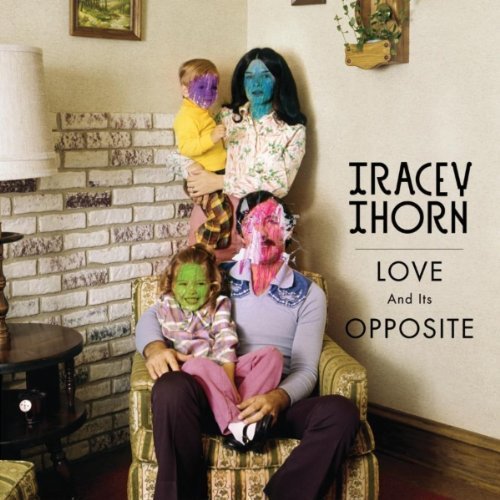 Tracey Thorn’s latest solo outing isn’t a new Everything but the Girl album, but it comes close — closer than her dancefloor-friendly 2007 effort, anyway. Starved EbtG fans who listened to Out of the Woods and came away disappointed in its relatively low quotient of memorable melodies should be heartened by Love and Its Opposite — it sounds a lot like the band’s mid-period work, heavy with midtempo keyboards, light electronic touches, and Thorn’s exquisite voice on top of everything.
Tracey Thorn’s latest solo outing isn’t a new Everything but the Girl album, but it comes close — closer than her dancefloor-friendly 2007 effort, anyway. Starved EbtG fans who listened to Out of the Woods and came away disappointed in its relatively low quotient of memorable melodies should be heartened by Love and Its Opposite — it sounds a lot like the band’s mid-period work, heavy with midtempo keyboards, light electronic touches, and Thorn’s exquisite voice on top of everything.
Listen carefully, though, and you’ll hear a major shift. Love and Its Opposite is a pop rarity — a record about, in Thorn’s words, “real life after 40.” It’s about being a grown-up and watching the relationships around you crumble, about coming to terms with your own feelings about commitment, and about tracing the bonds of family. It’s about getting older, really, which is something pop music has never been comfortable with; people just don’t write songs about confronting menopause while watching their daughters enter puberty. Thorn does it here, and she manages to be equally witty and heartfelt (and succinct — the track in question, “Hormones,” clocks in at a breezy 3:07).
As a rule, Everything but the Girl’s best songs intertwined easily digestible hooks and radio-ready arrangements with bittersweet melancholy — and that last part always had a lot to do with Thorn, a singer with one of the most beautifully sad instruments in modern music. It’s put to exceptional use here. It isn’t as though her band’s earlier work was disposable, but Love and Its Opposite has a thematic weight that brings out some of Thorn’s most subtly shaded vocals. At the risk of sounding insulting, it’s almost as though she’s finally earned her voice.
She knows when to quit, too. Love and Its Opposite runs at ten tracks and under 40 minutes, just long enough to say what it needs to and leave you wanting more. Hell, I’ve listened to it three or four times while writing this review. You may find yourself coming back to it just as often.

![Reblog this post [with Zemanta]](http://img.zemanta.com/reblog_e.png?x-id=49a061af-b1c8-4c42-9fa6-a9a9cf061245)



Comments